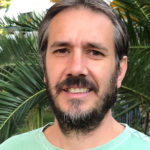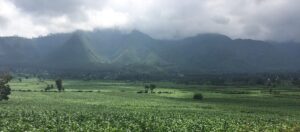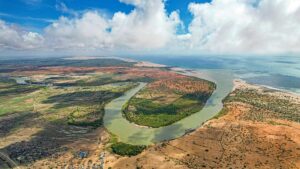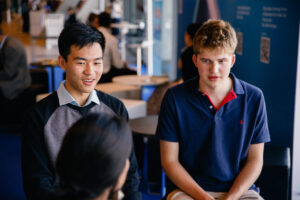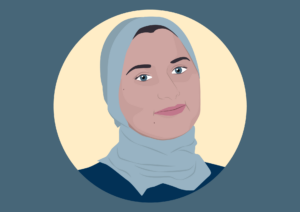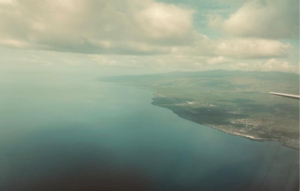Paraguay: Youth central to water innovation
“Over time, motivation gets lost along the way, but young people bring energy and the desire to continue working for the WASH sector.”
As mentioned, youth not only participated and was present during the workshop, but also had a very active role as facilitators and rapporteurs. This gave the workshop and discussions an active, innovative, and inspiring approach to the pressing challenges the WASH sector in Paraguay is currently facing.
An enriching experience for all
The Risk-Informed WASHBAT was very enriching experience for both young and senior professionals.
“I liked the discussions between institutional senior representatives and youth representatives from the School of Water Management of Misiones and the Youth Network for Water. Everyone played a very important role, sharing a working table to discuss different opinions, because all institutions have different perspectives, but being at the work table from that early age to hear first-hand was something very important because it does not always happen, and a synergy between generations was also sought. Working together is what leads us to attainable, tangible goals. Separated we can do nothing, but together we can achieve great things”.
-Representative from the National Youth Network for Water and rapporteur
“For us, young professionals, it is extremely important to access these spaces because it allows us to have a clearer vision of the sector, of the reality of the national context and above all how we can make concrete proposals, with the participation and support of the authorities to achieve an effective and more efficient management of the resources that lead to improving the water and sanitation system in our country”.
– Representative from the National Youth Network for Water and rapporteur
Indeed, promoting the active participation and engagement of youth gives the workshop a fresh and innovative dynamic, contributing to intergenerational exchange of knowledge and creating synergies to overcome the most pressing challenges in the WASH sector.
The Ri-WASHBAT in numbers
- 4 days of workshop
- 5 sectors: rural water, urban water, rural sanitation, urban sanitation, and WASH in schools
- 9 working tables
- 77 institutions
- 107 participants
- 46% women
- 50% youth (35 years or less)
The analysis, implemented through a multi-stakeholder dialogue, was organized by UNICEF Paraguay and the Directorate of Drinking Water and Sanitation (DAPSAN), with support from SIWI.
